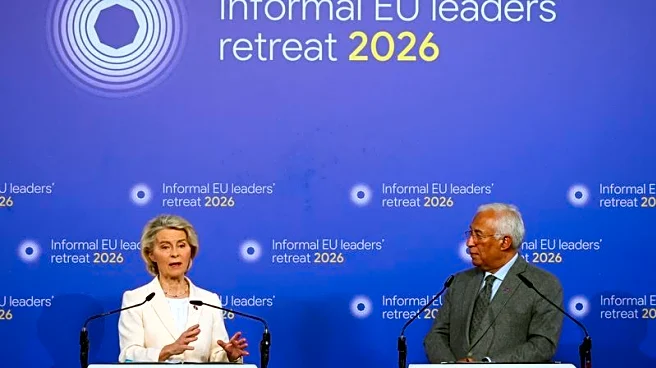Rapid Read • 8 min read
The Oklahoma City Thunder recently claimed their first NBA title, marking a significant achievement for the franchise. This victory comes amid a period of unprecedented parity in the NBA, where seven different teams have won the championship over the past seven years. The league's current collective bargaining agreement (CBA) has introduced salary cap aprons that make it challenging for teams to maintain dynastic runs. Thunder General Manager Sam Presti expressed optimism about navigating these financial constraints, despite concerns that such rules could hinder small-market teams like the Thunder from sustaining championship success. The NBA's commissioner, Adam Silver, has emphasized the importance of parity, suggesting that a more competitive league is beneficial for fans and the sport.
AD
The Thunder's victory and the current state of the NBA highlight a shift towards greater parity, which could reshape the league's competitive landscape. This development is significant for small-market teams, as it provides them with a more level playing field to compete for championships. However, it also presents challenges, as teams must make strategic financial decisions to stay competitive under the new CBA rules. The emphasis on parity could lead to more teams having a legitimate chance at winning titles, potentially increasing fan engagement across different markets. On the other hand, it may also reduce the likelihood of long-standing dynasties, which have historically driven viewership and revenue.
As the NBA continues to adapt to the new CBA, teams will need to focus on maintaining flexibility and making smart roster decisions to remain competitive. The Thunder, with their young core and strategic financial planning, are well-positioned to navigate these challenges. Other teams may follow suit, prioritizing depth and balance over assembling 'Big 3' lineups. The league's financial landscape is expected to evolve, with the salary cap projected to rise, potentially offering teams more room to maneuver. The ongoing emphasis on parity will likely influence team strategies and player movement in the coming seasons.
The shift towards parity raises questions about the long-term impact on the NBA's business model. While increased competition may benefit the league's overall health, it could also affect revenue if the absence of dominant dynasties reduces global interest. The balance between maintaining competitive fairness and maximizing commercial success will be a key consideration for the NBA's leadership moving forward.
AD
More Stories You Might Enjoy












